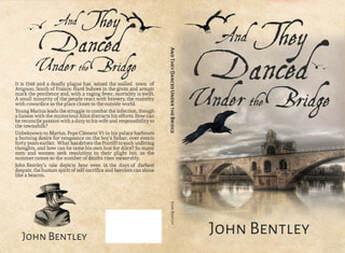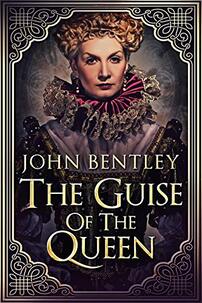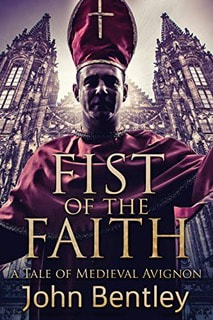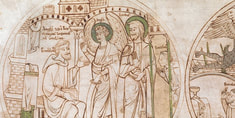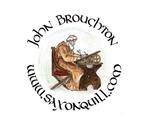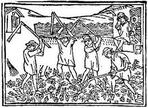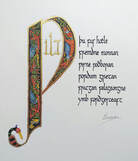JOHN BENTLEY & THE FRENCH CONNECTION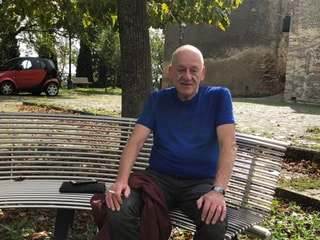 Author, John Bentley is an old friend, we go back to 1972, when we were teaching colleagues in Nottinghamshire. Sadly, we only lived in the same place, Radcliffe-on-Trent, for a short time, but although living miles or countries apart, we always meet up somewhere. On our last meeting in a tea room in Lincoln we had a chat about John’s blossoming writing career. John Broughton: Let’s begin with the most difficult question we all hate answering:
John Bentley: Any answer is liable to sound trite and self-congratulatory, but I’ll try! Throughout my life, I’ve adopted leadership roles: forming musical groups; as a Queen’s Scout from my ranks in the organisation; as editor of my weekly college newspaper; as a head of department on schools; as president of the Nottingham teachers’ union. I think responsibilities such as these have given me the confidence to use the written or spoken word with a degree of success. John Broughton: You have had three novels published. What made you decide to write? John Bentley: If I recall correctly, you had just had your first novel, The Purple Thread published and, during one of my frequent visits to you and Maria in Torano Castello, you challenged me to do the same. Initially, I hesitated, but once I’d said ‘Yes, I will’, I had committed to doing it. I think you also said you’d give me 12 months, by this time next year’, and, give or take a month, I had completed it And they Danced under the Bridge published by Creativia, now Next Chapter. John Broughton: (laughs) You know how I like to give you challenges! Are you a pen and paper writer? Or do you prefer the keyboard? John Bentley: Whenever I answer this question, folk are surprised that I employ what is, to them probably the most time-consuming method possible but, hey, each to his own! My system is as follows: first, given I have the basic idea, I draw a ‘spider diagram’ on an A4 sheet – each ‘leg’ being a thread coming from the ‘body’ in the middle; second, I write down a chapter list showing me the main events and chronology; third, then I start writing Chapter One, but by hand, always with the same black rollerball pen, crossing out and adding as I go along. I estimate that between 12-15 handwritten pages gives me a suitable chapter length although this isn’t set in stone; fourth, it’s then typed onto Word on my pc; fifth I ask my respected mate and novelist, John Broughton, to do a revision of that chapter; finally, I make any amendments needed, on screen, then on to the next… John Broughton: (sniggers) Respected, at last! Where and when do you prefer to write? Do you have a routine? John Bentley: I write in my armchair surrounded by sheets of notes, post-it notes, dictionary and tablet but I type at my desk. A routine? Not really. When I get to a point where further research or thinking is futile, I start typing. But if I get an idea in the night I always get up and jot it down because it will certainly have gone by the morning! Generally, I find the afternoon most productive. John Broughton: Have you ever experienced the dreaded writer’s block? If so, how do you cope with it? John Bentley: Yes, but specifically not knowing which of several starting points to use to get me into a chapter – the first 2 sentences I find painful. I ask myself why? how? when? then just get on with the answers. John Broughton: Well, here we are, enjoying a nice cup of tea; in my case, I drink it even in Italy, but when writing, are you a tea or coffee man? John Bentley: Coffee. John Broughton: (laughing) Now that’s what I call a laconic answer. We’ll leave it at that except to say if anyone’s interested, my answer would be water. Honest! Moving on, when you have an idea for a novel, what’s the spark? A theme? Or a plot? John Bentley: The spark usually comes from looking at a particular period in history, then an event or person in it, then my historical fiction author head takes over the characters and story. John Broughton: Sounds good, but if a reader enjoys one of your books, how does she find out more about you or your novels? John Bentley: I use Facebook a lot but also community sites/forums as well as more national Historical Writers sites. I’m currently reworking my own website. John Broughton: Good luck with that! If you could magically spend a couple of hours with one of your characters, who would you choose to meet up with? Why? John Bentley: The Chain Tower keeper in my third novel, The Guise of the Queen. He’s a wise old sailor who still wears his navy frockcoat with pride. He’s never been asked to perform his duty of stretching the chain across the harbour entrance until now and it’s a great honour. He’d have many tales to tell me. John Broughton: Yes, I’m sure he would! Do you have a favourite author? Can you recommend one of their books? (One you’d willingly read again). John Bentley: Albert Camus, La Peste; Victor Hugo, Les Misérables John Broughton: Ah Monsieur Bentley! The French connection again. I hope people will read your interesting Author biography to understand why. So, what do you enjoy/dislike about writing? John Bentley: dislike: synonyms and metaphors not springing to mind; like: the satisfaction of having a chapter well-written and revised, giving me the impetus to move on to the next. John Broughton: Can you provide one paragraph from any of your novels that best gives an idea of what you’re about as a writer? John Bentley: [Elysium angels looked down on the sad, afflicted, desperate town of Avignon. Saints Jean, Laurent, Martial and the rest had witnessed wise counsel bestowed from the commanding towers of the Palace go unheeded. Patience tested, consumed. This was their day of atonement. Nemesis in her moment, the Furies’ boundless punishment, Hera’s loathing of Zeus: all paled set against the apocalyptic pestilence that had devoured the wicked place. The people with houses not yet shut up stood in line since dawn before the carved stone portal of the Grand Audience. Restless, they awaited the ceremonial opening of its colossal iron-bound doors. In the beginning, the emergency law resulted in congregations increasing tenfold. But the clergy, too, were smitten without mercy and the churches closed, the Audience and the cathedral being the only seats of worship still ministering. Religion played no great part in the citizens’ lives but despair had driven them to clutch at any comfort, to hope against hope, to pray for survival. Old and young, men and women, sound and infirm, babes-in-arms composed the ominous procession. They wore neither festive clothes nor fine sandals. Talk, for what it was worth, was barely audible. They had little to say. The most pernicious event that had or would ever bedevil their lives had rendered them incapable of expressing feelings. Pain in every household, Death personified round every corner, they had become callous, cynical, cold-hearted. They scorned human kindness as a weakness, self-preservation demanded strength not sympathy, but to what end pleasantries? Each knew the lot of the other and the demise of any child ravaged one family as it did a neighbour’s….] (this is the opening paragraph of “And they Danced under the Bridge”, published by Creativia/Next Chapter) John Broughton: Well, I remember reading that paragraph as your beta reader what seems a lifetime ago, and thinking: this is going to be interesting…I wasn’t wrong! Thank you for your time, old friend. If you want to find out more about John Bentley and his historical novels set in France, DOUBLE CLICK on link below: https://davidbentley24.wixsite.com/website
 Get a free eBook!Join my newsletter & receive a free digital copy of Heaven in a Wildflower, book 1 of my St. Cuthbert Trilogy, as well as monthly news, insights, historical facts, & exclusive content delivered straight to your inbox! Thank you!You have successfully joined my mailing list!
1 Comment
|
To buy your copy of Rhodri's Furies click the link below:
https://www.amazon.co.uk/Rhodris-Furies-Ninth-century-Resistance-incursions-ebook/dp/B0BPX9C2D3/ |
